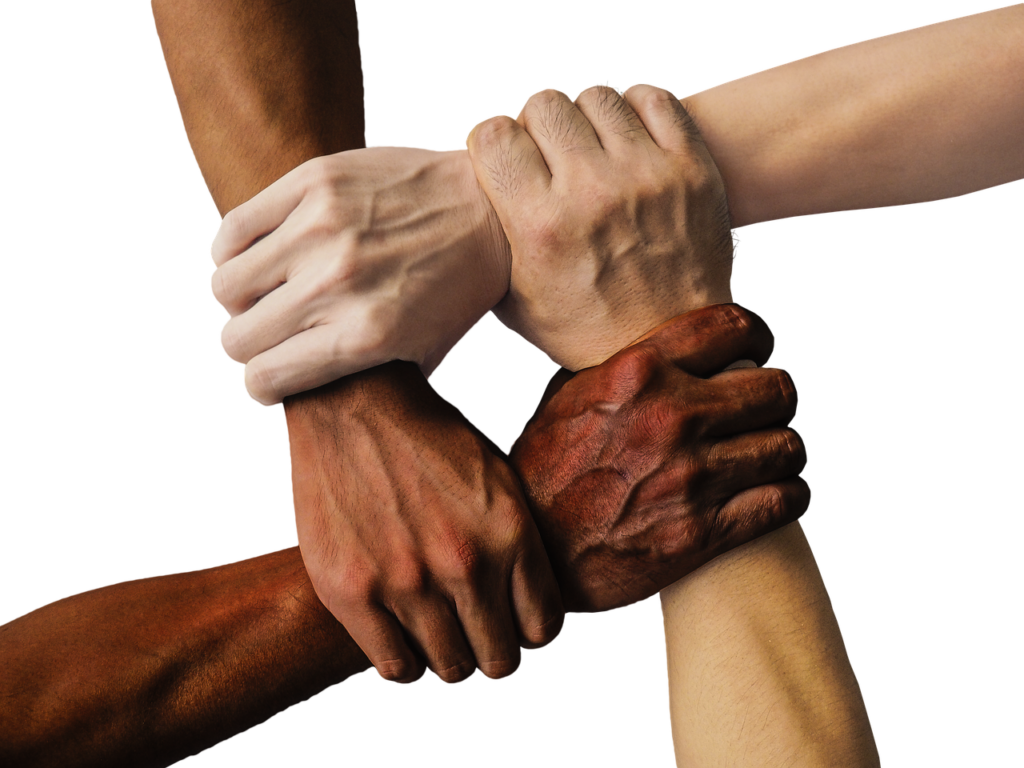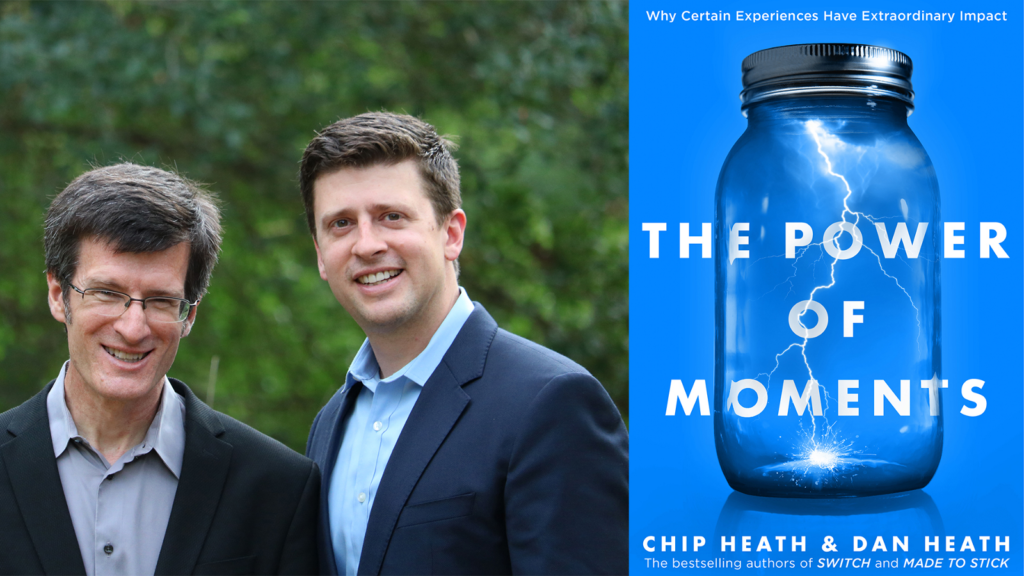
Why do you remember certain experiences and forget others? How can you design and engineer remarkable encounters that stick in your customers hearts and minds?
The answers to these and so much more were found in The Power of Moments, an extraordinary book by bestselling authors Chip Heath and Dan Heath.
From simple gestures like teachers visiting parents of disenfranchised kids, to monumental acts like the American Civil Rights Movement, Defining Moments are the meaningful experiences which stand out in our memory.
Many of them happen by chance: a new boss notices your hidden talent and grooms you; a holiday abroad led you to meet your future spouse; or a chat with a stranger on the bus led you to make a major change in your life.
Others, however, are engineered. These include significant occasions like coming of age birthdays, baptisms, promotion ceremonies, graduations and weddings.
As marketers, we need to think about creating defining moments for our customers. Termed as peak experiences, they can make the difference between one-time purchases and lifetime customer loyalty.
Transitions, Milestones, Pits and Moments

In thinking about defining moments, Chip and Dan suggested that conventional defining moments are divided into three categories:
- Transitions – These are natural turning points in our lives, and may include coming-of-age rituals like circumcision in Jewish and Muslim cultures, getting married, promotions, first days in school, and the first day at work. Transitions are usually marked by celebration.
- Milestones – These are significant personal and cultural landmarks include birthday parties, wedding anniversaries (eg 25th or 50th), years in a job (usually in multiples of 5), retirement, and, of course, fitness – 10,000 steps anyone? Milestones are normally commemorated.
- Pits – These are the negative defining moments due to hardship, pain, loss, or anxiety. They may include the death of a loved one, loss of a job, service failure (eg flight cancellation) or exam failure. Pits are meant to be filled, but you should not spend so much effort on them that you neglect the other two.
Not all defining moments have to fall into the three categories above. Day-to-day encounters can also be memorable if we design them to have the attributes of the four defining moments, namely:
- Moments of Elevation: Out of the ordinary encounters that are simply memorable
- Moments of Insight: “Aha!” moments where we uncover a vital truth
- Moments of Pride: Times when we glow with happiness over an achievement or brave act
- Moments of Connection: Social defining moments which we share with others
Let’s dive into each of them now.
Moments of Elevation
Imagine that you are at a hotel swimming pool, relaxing in the sun.
You suddenly spot a cherry-red phone mounted to a wall, and pick it up. A cheerful voice answers, “Hello, Popsicle Hotline.” You place an order, and minutes later, a hotel staff wearing white gloves delivers your cherry, orange, or grape popsicle to you at the pool side. On a silver tray. For free.
This and many other unanticipated surprises (free unlimited laundry service, anyone?) is the reason why The Magic Castle hotel in L.A. is consistently ranked as one of the top three hotels in the city despite occupying a fairly nondescript two-storey apartment from the 1950s.

Courtesy of Brisbane Kids
Like the Magic Castle Hotel (you can read more about it here), you can also invent moments of elevation. Rising above the everyday, they are peak experiences that make us feel engaged, joyful, amazed and motivated. They may be social occasions, special events, or serendipitous and spontaneous encounters.
To create moments of elevation for your customers, consider the following steps:
- Boost Sensory Appeal: Tap on all five senses – sight, sound, scent, taste, and touch
- Raise the Stakes: Incorporate some challenge like a competition, game, performance or deadline
- Break the Script: Do something which is unexpected and surprising
Moments of Insight
“Eureka! Eureka!” exclaimed Greek polymath Archimedes in his bathtub, as he realised how he can determine if the crowd given to his king was made of pure gold or an alloy mixed with silver.
Excited over his discovery, he hopped out of the bathtub and ran down the streets naked.
While Archimedes’ encounter was purely accidental, you can develop your own moments of insight for your customers by helping them to “trip over the truth” or to “stretch”…
Tripping Over the Truth
To champion this, you need to deliver a clear insight that is compressed in time and discovered by your customers themselves.
In the vivid example of Community-Led Total Sanitation (CLTS), facilitators tasked to transform open defecation habits of villagers brought villagers on walks to fly-infested areas covered in faeces, dipped their hair in the putrid substance, and swirled it around in a glass of water to show how fly transmitted disease could spread!
(Yes, the legs of flies are hairy. Go figure!)
Stretching for Insight
To produce moments of self-insight, you need to place your customers in a new situation which has a risk of failure. This can be done more effectively if you’re a mentor to them (like a teacher or coach) and provide four important ingredients:
- High standards
- Assurance
- Direction
- Support
The ultimate goal is to help your customer to learn from the experience, engineering moments of self-realisation.
Moments of Pride
The Boy Scouts certainly know the importance of instilling pride. Active for over a century, the Scouts’ Merit Badge programme has introduced multiple milestones by presenting each scout with a “Court of Honour” whereby scouts are recognised publicly by their peers.
Anybody who has spend some time in martial arts would immediately recognise the importance of different coloured belts – from the beginner’s white belt to the expert’s black belt.

Like the examples above, moments of pride capture you at your very best. They are events which allow you to show courage, earn recognition, or conquer a challenge. Often, these moments are best shared with others.
To design them, the Heath brothers suggests incorporating three key elements:
- Recognise Others: Invest a small amount of effort to praise others for something that they did not expect.
- Multiply Meaningful Milestones: Reframe a long journey so that it has many intermediate “finish lines.”
- Practice Courage: Moments of courage make us proud. To do so effectively, we should “preload” our responses. During the American Civil Rights Movement, black teenage students tasked to “sit-in” cafes that discriminated against African Americans practiced with realistic scenarios where they were scolded, pushed and chided. This preparation helped them to succeed when the actual peace protests occurred.
Moments of Connection

In 45 minutes, you can feel as intimate with a complete stranger as you are to the most intimate person in your life.
This amazing achievement was accomplished by social psychologist Art Aron, who developed an escalating set of 36 questions that a pair of strangers were supposed to alternately ask and answer. Drawn one at a time, they ranged from fairly safe ones during Round 1, like “What would constitute a perfect day for you?” to probing ones during the final round, like “Tell your partner what you like about them; be very honest this time, saying things that you might not say to someone you’ve just met.”
At the end of the exercise, the pair were separated and asked to complete a short survey which included a measure of closeness. The mean scores achieved by participants were comparable to their “closest, deepest, most involved, and most intimate relationship.”
While not all moments of connection may be as insightful as the one above, they are important as we feel warmth, unity, empathy and validation. To spark moments of connection for groups of people (think social media communities, for instance), you need to help them bond with each other.
This can be accomplished in two ways.
1) Creating Shared Meaning
You can try to orchestrate encounters with shared meaning by creating a synchronised moment (like a staff town hall event or members get together); inviting shared struggle (eg volunteers coming together to clear beach trash); or connecting to meaning (doing something with a strong purpose, see Start with Why).
2) Deepening Ties
Strengthen the ties that bind people together by being responsive to others. This can be achieved by attuning ourselves to others in 3 ways:
- Understanding: “My partner knows how I see myself and what is important to me.”
- Validation: “My partner respects who I am and what I want.”
- Caring: “My partner takes active and supportive steps in helping me meet my needs.”
A good way to improve responsiveness is to start by listening to others.
Making Marketing Memorable
Written for a general audience, The Power of Moments is one of those rare gems which you simply cannot put down. Masters in storytelling, the Heath brothers wrote persuasively citing numerous examples and case studies in their thesis.
As a content marketer, I’m especially intrigued by how I can use defining moments to change how my client’s target audiences think and feel.
For example, I could craft customer stories that led to a Moment of Insight for a recruitment business (“I’ve been working in the wrong job all these years, and it took this encounter to make me realise so.”)
Or I could work with a travel agency to engineer more Moments of Pride for their travel customers, like creating a checklist of must-dos around the world and getting them to tick it one by one.
Have you created any defining moments for your customers? What about your personal life? Which defining moment would you classify as one of the most significant and why?
PS – Completing this book review and article at 1,500 over words is a milestone moment of pride for me. 🙂

Chip and Dan Heath and The Power of Moments (source of image)

Cool headline you’ve got here. And I also like the topic that you have discussed here. These topics or moments are truly magical to share.
Great Article, Well summed up, Thanks for sharing.